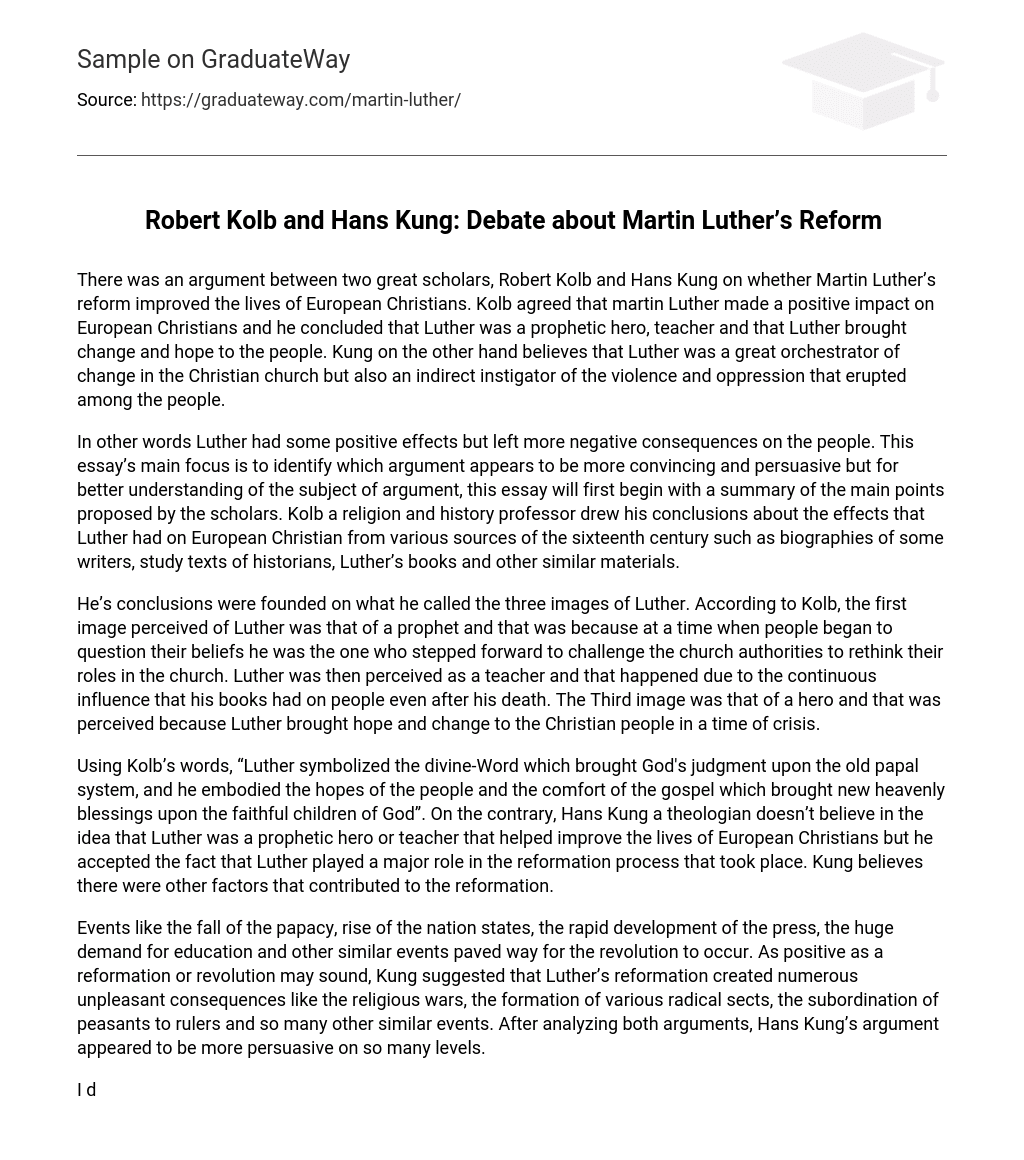The debate between two eminent scholars, Robert Kolb and Hans Kung, centered around the question of whether Martin Luther’s reformation had a positive effect on the lives of European Christians. Kolb maintained that Luther was a courageous figure who brought about transformation and optimism for the people, considering him a prophetic hero and educator. Conversely, Kung argued that although Luther played a pivotal role in reshaping the Christian church, he also indirectly contributed to the violence and oppression that engulfed the populace.
In summary, this essay aims to determine the more convincing and persuasive argument regarding the effects of Luther on the people. It is important to first provide a summary of the main points put forth by scholars. Kolb, a religion and history professor, derived his conclusions on the impact Luther had on European Christianity from a range of sixteenth century sources including biographies, historical study texts, Luther’s own books, and similar materials.
According to Kolb, Luther’s conclusions were based on what he referred to as the three images of Luther. The first image was that of a prophet, as Luther emerged during a time when individuals began questioning their beliefs and he courageously challenged the church authorities to reassess their roles in the church. Luther was also seen as a teacher, with his books continuing to influence people even after his passing. The third image portrayed Luther as a hero, bringing hope and instigating change for the Christian community during a period of crisis.
In the words of Kolb, “Luther symbolized the divine-Word which brought God’s judgment upon the old papal system, and he embodied the hopes of the people and the comfort of the gospel which brought new heavenly blessings upon the faithful children of God.” Conversely, theologian Hans Kung does not believe in the concept that Luther was a prophetic hero or teacher who improved the lives of European Christians. However, he does acknowledge that Luther played a significant role in the reformation process. Kung posits that there were additional factors that contributed to the reformation.
Events such as the fall of the papacy, the rise of nation states, the rapid development of the press, and the high demand for education, among others, set the stage for the revolution to take place. While a reformation or revolution may seem positive, Kung argued that Luther’s reformation led to numerous negative outcomes, including religious wars, the emergence of radical sects, and the subjugation of peasants to rulers. After evaluating both arguments, Hans Kung’s perspective emerged as more compelling on many fronts.
I didn’t agree with Robert Kolb’s argument because he only focused on the positive effects of Luther’s reformation. Kolb implied that any events that did not align with Luther’s intentions were unimportant. In contrast, Kung provided a comprehensive explanation of the events before and after the Lutheran reformation, giving readers a better understanding of its effects. What I found most convincing in Kung’s argument was that European Christians experienced more negative consequences as a result of Luther’s reformation.
The religious wars between Catholic and Protestant Christians, lasting for a century, as well as the oppression and subordination of peasants by their rulers, led to a brutal war that claimed the lives of nearly all involved. These events are all painful memories that arise from the effects of the reformation. Following the reformation, the church, originally intended to be free from corrupt popes, fell under the control of kings and princes, resulting in increased oppression for European Christians.





